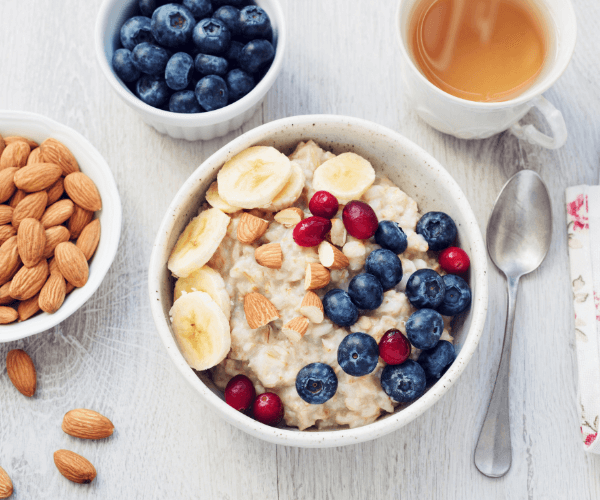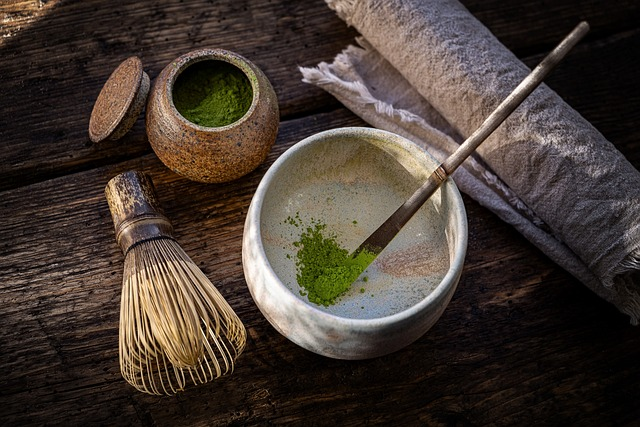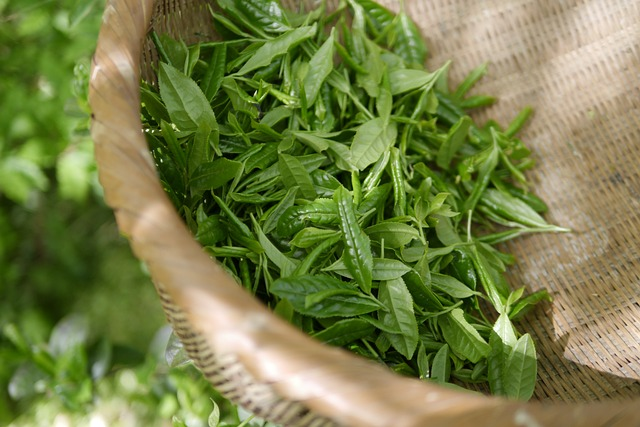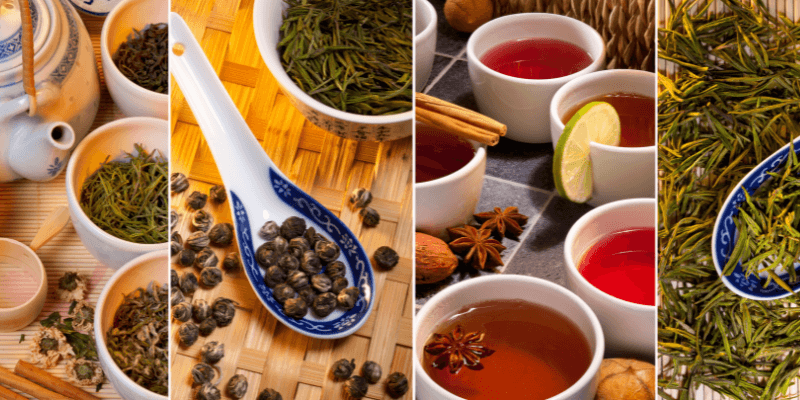Key Takeaways:
- Understanding the optimal times to drink green tea can enhance its weight loss benefits.
- Green tea's components, such as EGCG and caffeine, play a significant role in fat oxidation and metabolism boosting.
- Incorporating green tea into a balanced diet and healthy lifestyle is crucial for achieving weight loss goals.
Green tea has long been celebrated for its numerous health benefits, including its potential to aid in weight loss.
But did you know that the timing of when you drink green tea can significantly impact its effectiveness in helping you shed pounds?
In this article, we'll explore the best time for green tea for weight loss, backed by scientific insights and practical tips to integrate this healthy habit into your daily routine.
The Science Behind Green Tea and Weight Loss
Green tea is a powerhouse of antioxidants, particularly a catechin called EGCG (epigallocatechin gallate), which is an important antioxidant that research suggests plays a role in boosting metabolism and aiding fat oxidation.
Unlike black tea, green tea is less processed and retains more of its natural compounds.
The caffeine content in green tea also contributes to its fat-burning properties, making it a popular choice for those looking to lose weight.
Morning: Kickstart Your Metabolism
Starting your day with a warm cup of green tea can be a great way to boost your metabolism.
Studies suggest that consuming green tea in the morning increases fat oxidation and can provide a gentle caffeine boost, unlike coffee, which may cause jitters in some individuals.
However, it's important to note that drinking green tea on an empty stomach may lead to discomfort for some people, so consider pairing it with a light breakfast.

Pre-Workout: Enhance Fat Burning
Drinking green tea before a workout session can help enhance your fat-burning efforts.
The combination of caffeine and EGCG combined can lead to increased fat oxidation during exercise.
This means that your body may be more efficient at using fat as fuel, helping you lose belly fat and improve overall health.
After Meals: Support Digestion and Fat Oxidation
Consuming green tea after meals can aid in digestion and continue the process of fat oxidation.
The antioxidants in green tea help in neutralizing free radicals and can have anti-inflammatory properties, which are beneficial after consuming food.
However, it's best to wait a bit after eating, as drinking tea immediately after meals can hinder the absorption of certain nutrients.
Green Tea and Its Role in Preventing Health Conditions Green tea, derived from the Camellia sinensis plant, is abundant in antioxidants and has been linked to the prevention of various health conditions.

Regularly choosing to consume green tea can contribute to a reduced risk of cardiovascular diseases, including heart disease.
The catechins found in green tea are known for their anti-inflammatory properties, which play a crucial role in maintaining heart health and supporting the vascular system.
Moreover, studies have suggested that the antioxidants in green tea may help in reducing the risk of breast cancer.
The polyphenols present in green tea help to inhibit tumor growth and can potentially lower the rate of cancer cell proliferation.
This makes the time to drink green tea not just a matter of weight loss but also an important consideration for long-term health and disease prevention.
Matcha Tea: A Potent Variation for Weight Loss and Health
Matcha tea, a form of green tea that comes in a powdered form, is celebrated for its concentrated nutrients and many health benefits.
When you choose green tea in the form of matcha, you're getting a higher dose of antioxidants compared to regular green teas.

This is because matcha is made from ground whole tea leaves, which means you consume the entire leaf.
This can significantly boost metabolism and enhance the body's ability to burn fat, making it an excellent addition to a weight loss regimen.
In addition to aiding in losing weight, matcha tea's rich content of catechins can help reduce inflammation and may even improve liver function.
Its unique preparation and consumption method allows for a higher caffeine intake, which can increase energy expenditure and fat oxidation when consumed before a work out.
However, it's important to monitor caffeine intake to avoid potential side effects, especially if consumed in large quantities.

Ad Sponsor
Green Tea and Anti-Inflammatory Benefits
Green tea is not just a weight loss ally; it's also renowned for its anti-inflammatory properties.
These benefits stem from its rich content of polyphenols, particularly epigallocatechin gallate (EGCG), which is a potent antioxidant.
Drinking green tea can help reduce inflammation and may be beneficial for individuals dealing with chronic health conditions where inflammation is a key factor.
Conditions such as arthritis, inflammatory bowel disease, and even heart disease can see potential improvements when green tea is incorporated into one's daily routine.

Moreover, the best time to drink green tea to maximize its anti-inflammatory effects has not been set in stone.
However, integrating it into your morning ritual or sipping it between meals can contribute to a steady intake of its plant abundant antioxidants throughout the day.
This consistent consumption can help maintain a constant anti-inflammatory defense in your body, potentially leading to long-term health benefits and improved well-being.
Green Tea's Role in Managing Health Conditions
The role of green tea in managing various health conditions is an area of growing interest among researchers and health enthusiasts alike.
Green tea helps not only with weight management but also plays a part in regulating blood sugar levels, improving brain function, and even enhancing skin health.
Its diverse range of benefits makes it a versatile drink for those looking to address specific health concerns or simply maintain overall wellness.

When considering the best time to drink tea for health conditions, it's important to align green tea consumption with your body's natural rhythms and needs.
For instance, drinking green tea in the morning can provide a gentle caffeine boost for cognitive function.
On the other hand, enjoying a cup in the early evening—well before bedtime—can offer a calming effect without affecting sleep quality.
Always consult with a healthcare provider to tailor green tea drinking habits to your specific health condition and lifestyle.
Mid-Morning or Afternoon: Sustain Energy Levels
A cup of green tea in the mid-morning or afternoon can help sustain your energy levels and prevent overeating by providing a feeling of satiety.
The amino acids in green tea, particularly L-theanine, work in synergy with caffeine to provide a stable and extended release of energy, unlike the quick spike and crash associated with coffee.

Avoid Late Evenings: Prevent Sleep Disruption
While green tea has less caffeine than coffee, it's still important to avoid drinking it late in the evening, as it may disrupt your ability to fall asleep.
A good rule of thumb is to stop consuming green tea at least 3-4 hours before bedtime to ensure that caffeine doesn't interfere with your sleep patterns.

Choosing the Best Green Tea
When it comes to choosing green tea, opt for high-quality leaves or matcha green tea, which is a concentrated powder form that contains a higher level of antioxidants and can be more effective in helping people lose weight.
Additionally, green tea supplements are available, but it's best to consult with a healthcare provider before adding them to your regimen.

Quantity Matters: How Many Cups?
The question of how many cups of green tea one should drink for weight loss is often asked.
While there is no one-size-fits-all answer, studies suggest that 2-3 cups per day can be beneficial as part of a healthy diet and lifestyle.
It's important to balance your green tea intake with an overall healthy diet and regular exercise for optimal results.
Green Tea Beyond Drinking: Other Uses
Green tea isn't just for drinking; it can also be used in various other forms. For instance, green tea leaves can be incorporated into recipes or used as a facial steam bath to reap its anti-inflammatory properties and help reduce dark circles.
These alternative uses can contribute to a balanced diet and healthy lifestyle.
Final Thoughts
The best time for green tea for weight loss is in the morning to kickstart your metabolism, before workouts to enhance fat burning, and after meals to support digestion.
Mid-morning or afternoon cups can help maintain energy levels, but avoid late evening consumption to prevent sleep disruption.
Choose high-quality green tea or matcha, and aim for 2-3 cups per day as part of a balanced diet and healthy lifestyle.
Remember, green tea is a supplement to, not a substitute for, a healthy diet and regular exercise.
Best Time for Green Tea for Weight Loss FAQ's
Q: Can drinking green tea on an empty stomach cause problems?
A: Yes, some people may experience discomfort or nausea when drinking green tea on an empty stomach.
It's recommended to pair it with a light breakfast or consume it after meals.
Q: How much green tea should I drink daily for weight loss?
A: Research suggests that 2-3 cups of green tea per day can be beneficial for weight loss when combined with a healthy diet and regular exercise.
Q: Can green tea help reduce belly fat specifically?
A: Yes, green tea can help reduce belly fat as part of a balanced diet and exercise regimen.
The catechins, particularly EGCG, and caffeine in green tea aid in increasing fat oxidation and boosting metabolism.
Other Articles of Interest:












